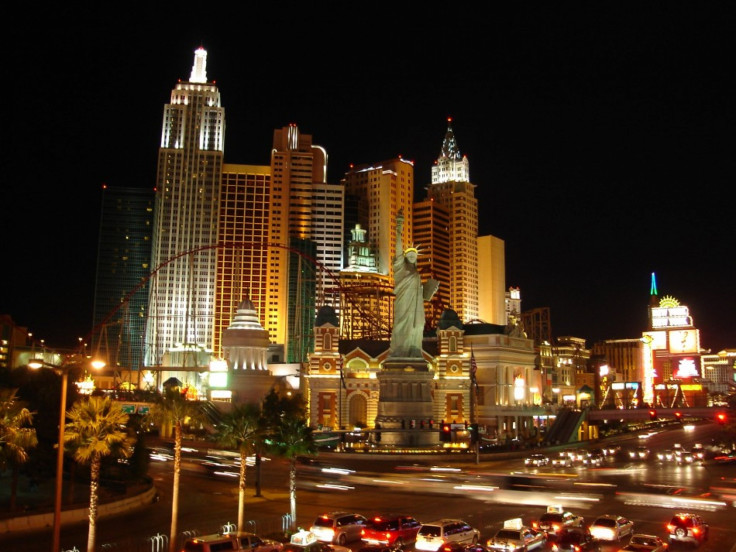Welcome to Nevada: The State With the Nation’s Highest Unemployment Rate

Battered by the twin misfortunes of a housing collapse and a national recession, the state of Nevada has the highest jobless rate in the U.S. as the country observes Labor Day.
According to the Bureau of Labor Statistics, Nevada had an unemployment rate of 12.9 percent in August, ranking it a dubious number one in the nation.
The numbers are even worse for certain segments of Nevada’s population.
According to the Research and Analysis Bureau of the Nevada Department of Employment, Rehabilitation and Training (DETR), men in state have a jobless rate of 15 percent, versus 11.8 percent for women.
“Traditionally male-dominated industries such as construction have lost the most jobs during the recession, while female-dominated industries [including health-care and education] have fared better overall,” the DETR wrote.
For minorities in the state (as in the country overall), unemployment is particularly burdensome.
Unemployment for Nevada’s African-Americans clocked in at 18.6 percent in July, while 15.9 percent of Hispanics were jobless (the rate is 12.9 percent for whites).
However, that it mild compared to the jobs crisis among young people -- Nevadans between the age of 16 and 24 had a jobless rate of 22.1 percent in July, and this figure has remained at this level for more than a year.
The state’s jobs base has been shriveling up for more than a year.
Brian Gordon, a principal with the Las Vegas consulting and research firm Applied Analysis, told the Las Vegas Review-Journal newspaper: “From the lows we saw during the recession, we have not seen any material gains overall, so we're continuing to climb out of a very big hole. The recovery cycle is elongated and will be measured in years and not months, so we have a lot of work to do in terms of the overall job market.''
Steve Brown, director of the Center for Business and Economic Research at the University of Nevada-Las Vegas, told the paper he’s not even sure that southern Nevada ever emerged from the national recession.
I'm not sure I'd say we have a recovery, he said. I'd say we have the elements of a recovery. It's not something that seems to be extending to all areas of the economy, and the areas that are doing well aren't doing well enough, at least in terms of employment, to offset losses elsewhere.
Nevada possesses some innate structural characteristics that leaves it vulnerable to economic crises. The state’s economy is dependent upon essentially three industries: casino gambling/tourism, construction, and mining -- the first two are highly volatile, while the third is concentrated far outside of Las Vegas (where most of the state’s population lives).
Without the kind of industrial diversity that some other states enjoy, Nevada’s employment picture is subject to wild swings – the situation is somewhat analogous to Detroit, Michigan’s heavy reliance on the auto industry.
Last autumn, David Damore, associate professor of political science at University of Nevada-Las Vegas, told International Business Times that the bulk of job losses in Nevada have been concentrated in the construction sector – and this phenomenon has spilled over into other businesses that support the building trade, leading to lost wages and a big decline in the sales tax.
Nevada doesn't really have much of a manufacturing base, and nothing like a tech sector, he said. There is [a] big push for establishing a renewable energy sector to diversify the economy; but that would require a huge amount of start-up money. And even if such an enterprise gets off the ground, it won’t employ a lot of people.
The recession of 2007-2009 also rewrote the rules about casino gambling being recession-proof.
Historically, gaming has prospered regardless of the national economy, Damore said. For example, after 9/11, there was a lull, but visitors soon came back to Vegas in big numbers. This time, however, the casinos have been badly hurt.
Nevada’s fabled gaming venues have also been harmed by the proliferation of casinos in several other states. Las Vegas has lost it unique appeal as a Mecca for high-rollers.
In addition, Nevada suffers from a feeble education system.
Traditionally, education has not been a high priority in Nevada, Damore said.
Schools get low levels of government funding and high school dropout rates are high. For decades, the casinos and construction sectors hired tens of thousands of laborers, dealers, parking valets, etc... jobs that did not require much education, but jobs that nonetheless provided a comfortable middle-class lifestyle.
The state’s tax codes also exacerbate the problem.
The state's tax system is ridiculous, Damore adds. Tax revenues come mostly from gaming and the sale tax; but there is no broad-based business tax. For example, the mining companies -- who heavily influenced the writing of the state constitution -- are not taxed above 5 percent of their gross profits. The practice has been to get the 30-million annual visitors to pay the taxes. When they don't come, the state can't generate much revenue.
Brown, of University of Nevada-Las Vegas, recently told the Review-Journal that an upswing of tourism to the state will to alleviate joblessness as long as construction and public sector jobs keep vanishing.
Performance measures within the [leisure and hospitality] sector are up, and the sector is reporting job growth, he said. The ripple effect of those investments will ultimately pay dividends for Southern Nevada. But diversification of the employment base, which is a much longer-term prospect, will be required to expand the economy in other areas.
© Copyright IBTimes 2024. All rights reserved.











